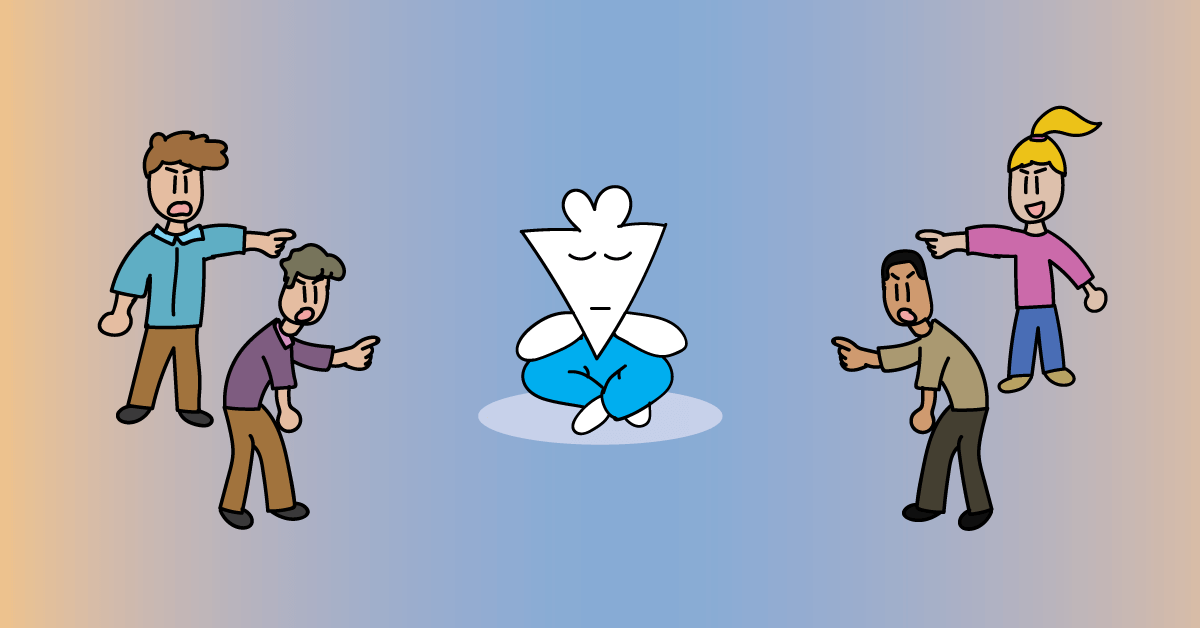The Problem of What Others Think
In a letter from Seneca to his friend Lucilius, he writes:
It’s the height of madness to worry about being despised by the despicable.
One of the great causes of suffering is this maddening worry about what others think of us. I can go into its causes by pointing to evolutionary psychology and our hunter-gatherer roots, but that’s neither novel nor interesting. Rather, I want to delve into the asymmetry between what we know about ourselves, and the uncertainty surrounding what others know of us. Because at its core, the worry about what others think is ultimately a function of uncertainty.
Whenever we interact with someone – whether in-person or online – a gap emerges between who you are, and who you are presenting. This is why the person you are with your boss isn’t the same as the person on the couch watching Netflix. Or why the person you are with your best friend isn’t the same as the person you are with an acquaintance. Each relationship contains a culture of behavior that you oscillate between, which means that you’re constantly presenting a different version of yourself across a wide range of interactions.
What this means is that it becomes increasingly difficult to know who you really are. If a certain version of you emerges with this individual, but in the very next moment you toggle another set of behaviors with another, then that means your very identity is switching upon context. And the more you have to maneuver between various projections of yourself, the more difficult it becomes to get a handle on what “yourself” means in the first place.
This is why you’re likely exhausted after large social gatherings, and yearn to turn on the TV and watch something brainless until you drift off to sleep. The fatigue is not caused by the rigor in which your mouth is moving to talk, but rather by the constant switching of identity that occurs in these situations. It’s no surprise that alcohol is a feature of these gatherings, given that it helps to merge your identity into one unit for the duration of the night. Confidence is nothing more than the assertion that you know yourself, and alcohol helps do this at the expense of clarity.
What we want to do is retain this internal confidence without the usage of any external substances. Because if you can do that, then you’ll be able to neutralize the fear of what other people think using your own mind, and nothing else. The question, of course, is how?
Well, the answer is to retain a baseline of equanimity amongst the selves you’re presenting. If you find yourself engaging in behavior that you find questionable in hindsight, then that’s a sign that you’re deviating from who you truly are. For example, I once knew someone that always complained about his life: the people in it, the circumstances he faced, the cards he was dealt. Unsurprisingly, when we got together, we spent most of the time gossiping about others. After I realized that I was exhibiting behavior I didn’t like when I was with him, I made a conscious effort to create distance between us. That helped to remove a projection of myself that didn’t contribute to the person I knew I was.
When you’re worried about what someone thinks of you, it’s rarely about that person’s opinions of you. It’s about your own opinions of yourself. This happens when you present a version of yourself that you don’t like, and you’re left wondering what stupid or regretful things you may have said when you embodied that projection. It’s only when you’re back in the comforts of your true self where the spell is broken and you’re left ruminating about what that prior version of you may have done.
The goal is to reduce the chances of these undesirable projections from emerging. Whether you do it through self-reflection or through distancing yourself from those that detract from that goal, retaining equanimity amongst these selves gives you the confidence required to ground your identity. Because it’s only through knowing yourself where you can assert that the opinions of others won’t tamper with what you know to be true.
The ability to study your own mind is often the result of subtraction. It doesn’t happen by reading more books, listening to more podcasts, or having more friends. Rather, it happens by removing the influences that no longer serve you, and allowing the remainder to act as guideposts for the person you know yourself to be.
_______________
_______________
For three more stories and reflections of this nature:



